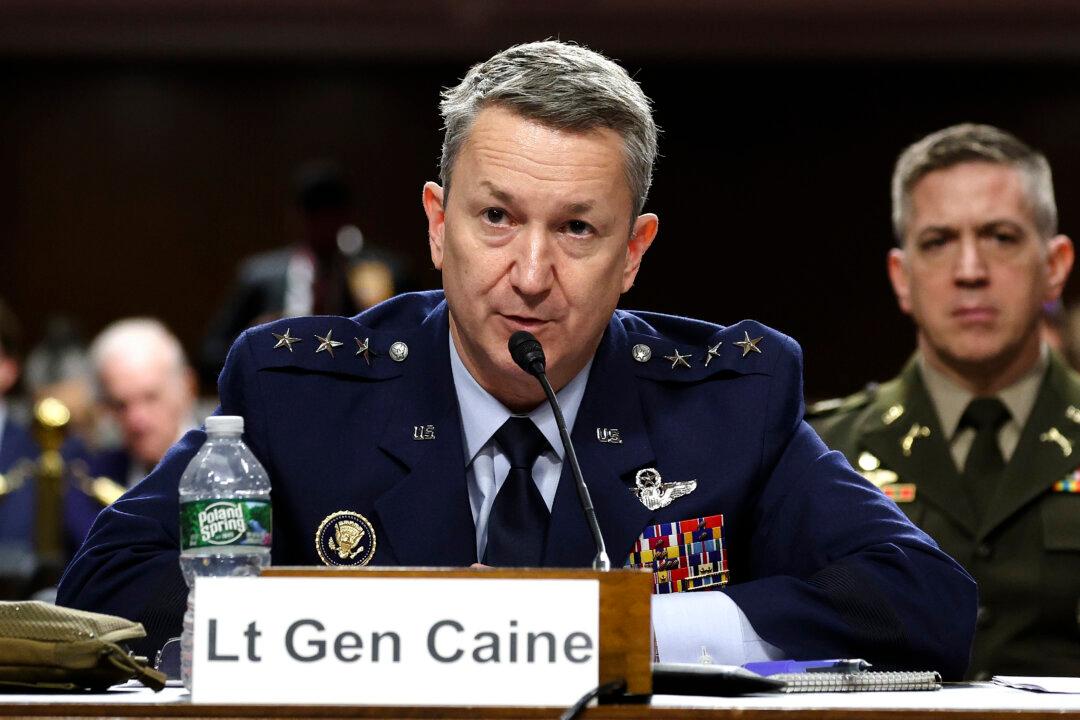The Senate voted in the early hours of Friday to confirm President Donald Trump’s choice for chairman of the Joint Chiefs of Staff, retired Lt. Gen. Dan Caine.
Lawmakers confirmed Caine, 60–25, in an overnight vote before heading home for a two-week recess, capping a turbulent nomination process that began in February, when President Donald Trump proposed Caine as the next chairman of the Joint Chiefs of Staff after abruptly firing his predecessor, Gen. Charles Q. Brown.




